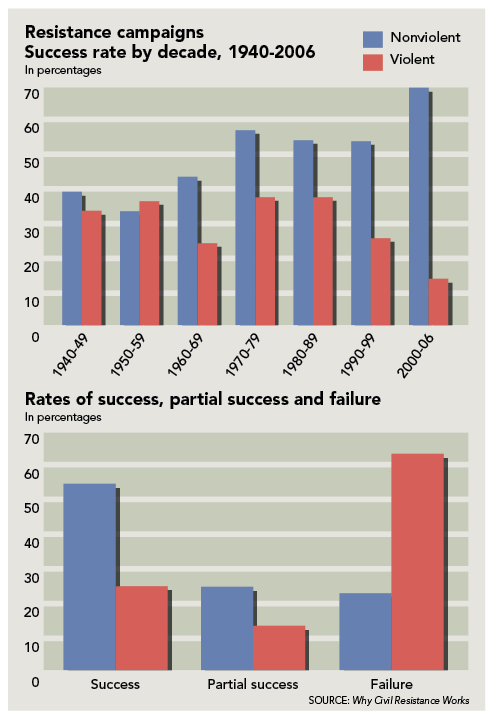Nonviolent resistance therefore is not directed against people but against forces of evil. Those who happen to be doing evil are as victimized by the evil they do as those who are the object of their oppression. From the perspective of nonviolence, King argued that the enemy is not the white people of Montgomery, but injustice itself. The object of the boycott of the buses was not to defeat white people, but to defeat the injustice that mars their lives. The means must therefore be commensurate with the end that is sought—for the end cannot justify the means, particularly if the means involve the use of violence, because the “end is preexistent in the means.”This is particularly the case if the end of nonviolence is the creation of a “beloved community.”
Those we tend to identify as our enemies are fellow image bearers of God:
While no Christian will ever say it, we tend to group terribly evil individuals in a subhuman category. Murderers and despots are not worthy of life. They deserve to rot in hell. They are animals. Often, we loathe these depraved individuals, and rarely do we seek to love and weep for them. King rightly identifies that those who opposed him, while technically his enemy, were fellow human beings worthy of love. If Jesus Christ could and did love those who murdered and tortured him, and if Jesus loved me while I was at enmity with God, than surely I am called to love even those image bearers who are at enmity with me. If we are not better than Jesus, than our enemies are not below us.
Our war is not with flesh and blood:
I think King identifies what so many of us forget - that our war is with evil. Yes, humans often ally with and embody evil, but our war is not with our fellow humans. Many of us wrongly believe that by defeating human embodiments of evil, we are defeating it. But such is not the case. Conquering and killing - even those who are evil - simply creates more evil, or extends the evil. We are very familiar with this in regard to our habits. We recognize that the "killing" of some of our bad habits is not the end of our inner warfare, as true change and reform requires a positive creation of good habits. As Hauerwas says at the end of his quote, the end we seek isn't simply the abolishment of evil, but rather the thriving of a loving community.
Means must be commensurate with the end:
The last sentence segues nicely into the third point Hauerwas makes. Christians who choose violence and those who choose nonviolence both claim that their end goal is the creation of a loving community. But one has to ask how the means of violence are commensurate and logical if the end being sought is a loving community? Such means and ends seem antithetical to one another. If my enemies are image bearers, and if my goal is reconciliation and loving community, how could I justify the use of violence as a consistent means to accomplish my goal?




 RSS Feed
RSS Feed